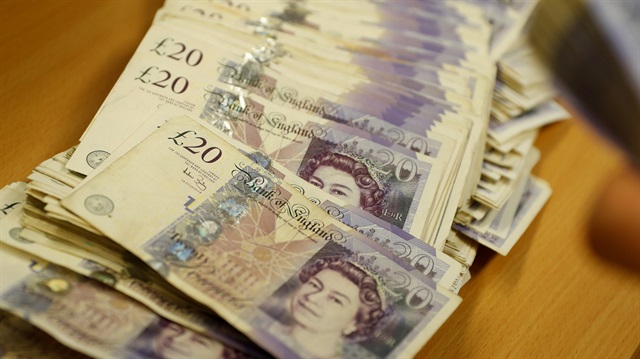
The UK's top share index rose on Monday, starting September on a stronger note as a weaker pound and a bounce across commodity stocks helped British equities outperform continental peers. The blue chip FTSE 100 index was up 0.8 percent at 7,493.04 points by 0857 GMT, while mid caps edged 0.2 percent higher.
A rise in oil stocks contributed more than 13 points to the FTSE 100, the biggest sectoral boost to the index.
Shares in Royal Dutch Shell and BP were up 1.5 percent and 1.2 percent respectively as the price of oil rose, supported by concerns that falling Iranian output will tighten markets once U.S. sanctions hit in November.
A firmer copper price also buoyed UK mining stocks, with Glencore, BHP Billiton and Anglo American up as much as 1.4 percent.
Other major stock markets across Europe were subdued on Monday, however, as investors fretted about an escalation in the trade war between the United States and China, which also weighed on Asian markets overnight.
"Investors still have mixed outlooks regarding the global trade situation as well as the turmoil in emerging markets caused by the recent Turkish Lira crisis and this means fewer traders are going long on stocks right now," Pierre Veyret, technical analyst at ActivTrades, said.
A weaker pound was another factor keeping the FTSE in positive territory. A fresh round of Brexit-related headlines dented demand for the currency, as critics at home and abroad ramped up their opposition to Prime Minister Theresa May's plans for leaving the European Union.
A depressed pound lifted the FTSE 100's big, dollar-earning constituents on the day.
However, worries over Brexit kept investors cautious on UK equities.
"The UK is a defensive, high-dividend yielding market which might have a problem if bond yields move sustainably higher, and if global equities advance, as we expect," equity strategists at J.P. Morgan said in a note. They are underweight UK equities.
"We look for a stronger GBP, which will weigh on the performance of FTSE 100."
Veterinary firm Dechra Pharmaceuticals was the biggest faller among mid cap stocks, its shares tumbling 15 percent and on track for their biggest one-day loss since January 2003.
Dechra Pharma dropped after it said it would implement a plan to navigate a hard Brexit, adding that the measure may result in 2 million pounds ($2.6 million) of additional expense.
Analysts at Investec said that while Dechra's preliminary results were ahead of their expectations, they were introducing some caution into their forecasts to reflect the potential impact of accounting standard changes, sanctions on Iran and a hard Brexit.




